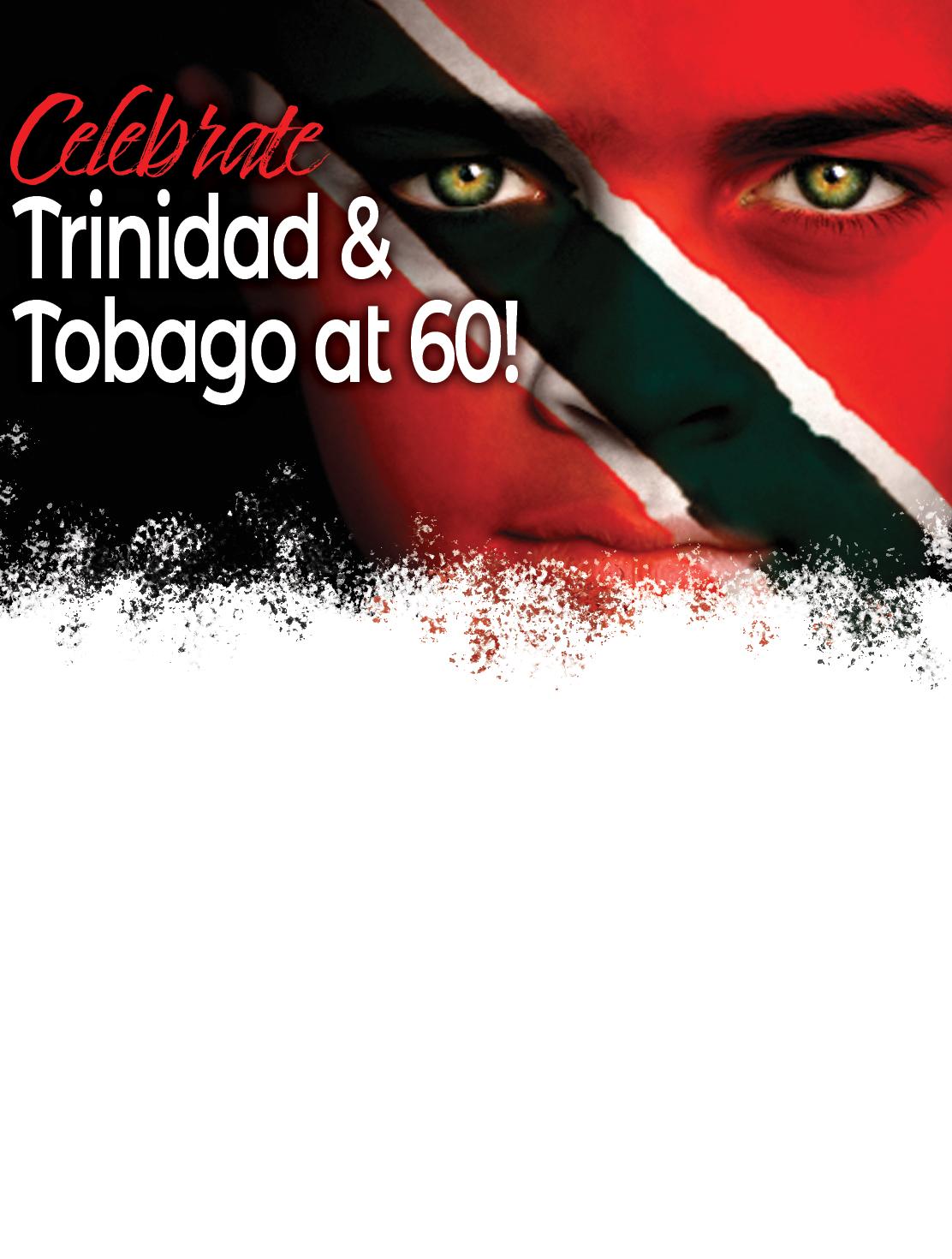
8 minute read
Arts/Entertainment
CARIBBEAN TODAY • JUNE SUPPLEMENT 2022 • 5B
COVID-19 NEWS Survey Reveals Optimism Among Business Owners Despite Pandemic Challenges
Advertisement
Supply chain issues top the list of concerns for small business owners over the last six months, but they see those pressures easing by mid-year, according to new research. In the meantime, inflation is expected to continue impacting business owners, with a majority planning to further raise their own prices.
The latest PNC semi-annual Economic Outlook survey of small and mid-size business owners and executives is a good gauge of the overall economy; however, analysts point out that the situation in Eastern Europe that’s unfolded since has likely intensified some of the sentiments expressed by respondents.
“The events in Ukraine were not on the minds of business owners when the survey was conducted in January,” says PNC chief economist, Gus Faucher, “There was concern at that time about rising prices, and that worry has likely intensified, given the rapid increase in energy prices, among other factors.”
In January, 34% of owners who rely on a supply chain said timeliness had worsened in the previous six months and 28% of businesses that rely on inventory are faced with the challenge of not having enough supply to meet expected demand. However, 57% expect these issues to improve in the next six months.
Rising prices also are on the minds of business owners – 51% expect to increase their prices in the next six months and 34% percent say their prices have already gone up in the past six months.
“Six months ago, businesses were raising prices because demand was strong enough that they could. Now it appears higher costs are forcing them to,” Faucher said.
Turnover and Hiring Impacts
Forty-three percent of business owners report losing staff since the start of the pandemic, which they agree is bad for business. Top reasons for employee departures are illness or death (50%), worker concerns over health or safety (46%), and changes in lifestyle or priorities (36%).
Among businesses with employees, 26% say it’s become harder to hire qualified personnel. Businesses are responding to recruiting challenges, most notably through improved work conditions,

(FlamingoImages / iStock via Getty Images Plus) like health and safety improvements, allowing more flexible work arrangements, and increasing compensation. In the meantime, businesses are coping with worker shortages by increasing existing employees’ workloads, having owners or managers cover shifts and by increasingly relying on technology or automation.
Other key survey findings include:
• Vaccine boosterism: Fifty-six percent of business owners say a majority of their workforce has a COVID-19 booster vaccination. Sixty-five percent have taken some action to encourage boosters through a requirement (31%), assistance and/or education (29%), incentives (22%) or restrictions for those who choose not to receive the booster (19%). • Tempered optimism: Business leaders’ expectations about their own companies remain strong with 47% feeling highly optimistic and only 2% feeling pessimistic. However, their outlook for the national and local economies has shifted to cautious.
• Business adaptation: Small and mid-sized businesses have made dramatic, lasting changes to adapt to the pandemic environment. Ninety-two percent have made at least one change to policies, processes, operations or use of technology, and almost all of those owners expect one or more of the changes to become permanent.
- StatePoint Y
Caribbean Today will be spotlighting local and state elections in August. Come with Caribbean Today as we introduce you to candidates who wish to earn your vote. This is a year like no other. The voting public needs to pay attention. Candidates, this is the time and Caribbean Today is the vehicle you need to present yourselves to the public. Your information will be presented in print and at www.caribbeantoday.com. It’s time for that final push. Time to take your message to the people and Caribbean Today is the place. ELECTION IS AUGUST 23, 2022 EARLY VOTING STARTS AUGUST 8-21, 2022
Candidates, don’t get left behind. Send your information and photographs to sales@caribbeantoday.com. Call now to advertise: 305-238-2868
Florida Sees New Uptick In COVID-19 Infections
Is Florida in the grip of another COVID-19 surge?
More than three-quarters of Floridians live in counties at “high” risk of COVID-19, according to federal data released on June 2nd and analyzed by the Tampa Bay Times.
That is due to the state reporting a seven-day average of more than 10,200 cases on Friday, June 3rd. Positivity rates have also been rising in South Florida. MiamiDade County reported a positivity rate of 26.7 percent while Broward County has a positivity rate of 23.9 percent.
That means residents should all wear masks in public indoor spaces, according to Centers for Disease Control and Prevention guidelines, and get tested if they have symptoms.
“Based on new cases per week and hospitalization going up, that means it’s time to start protecting ourselves with a mask when we go indoors or in crowded areas,” Laura Arline, a doctor of internal medicine and pediatrics and BayCare’s chief quality officer, told the Tampa Bay Times.
It’s harder than ever to measure the virus’s spread. Widespread testing is no more. Many rely on at-home tests, the results of which are not reported to health officials.
Test positivity jumped to 19.8% in the last week of May, up from 18.3% the week before. The state is also recording the fewest test results since the start of the pandemic, which could contribute to high positivity rates.
Florida hospitals reported 2,465 confirmed COVID-19 patients on June 2nd. That’s a 20% increase from the 2,068 patients being treated the week before.
Arline told the Times that hospitalization rates are still low compared to the delta surge in the summer of 2021 because this version of the virus is not as virulent. But it is highly contagious and could match delta’s caseloads, although a more accurate number of infections may be unknown because of the increased use of home tests,
she said. Unlike other surges, however, our defenses against this one are weaker, she said and vaccines are less effective at preventing infection, and while they can still stave off disease and death, immunity wanes over time. Those who haven’t gotten a booster, or were vaccinated months ago, are vulnerable. That’s why it’s still important to get vaccinated or get the latest booster, Arline said. COVID-19 vaccines, she said, are still highly effective at preventing severe symptoms, hospitalization and death from this variant.
However, statewide there were 4.6 times as many COVID-19 patients at the peak of the omicron wave in January. Still former White House coronavirus response coordinator Dr. Deborah Birxshould, on a visit to Palm Beach recently, said Florida should expect an “exponential” COVID surge this summer.
Birx spoke to an audience of more than 200 people at the Kravis Center for a lunch hosted by Forum Club of the Palm Beaches, where she touted her recently released book, “Silent Invasion.” Few attendees wore masks.
But Birx warned of a summer swell of COVID infections and hospitalizations across Florida and the South. She also described some of what went on behind the scenes in the Trump administration as the coronavirus spread in 2020, which she details in her book.

Florida is seeing a new spike in COVID-19 infections.
- Rewritten from the Tampa Bay Times and several other sources
Y
COVID Safety And
Summer Travel

Join Caribbean Today as we celebrate this twin-island nation on its 60th Anniversary of independence. Trinidad’s economy is booming, and her people never seem to stop having fun. CT will look at the economy, and the people, to see who is who. We will examine the culture, music, folklore and more. Please call one of our trusted account executives to reserve your advertising space. ADVERTISING DEADLINE: AUGUST 19, 2022 CALL NOW!
305.238.2868 • Fax: 305.252.7843 • Toll Free: 800.605.7516 E-Mail: sales@caribbeantoday.com
BY DR. TINA CARROLL-SCOTT
Pandemic fatigue is real, as many people have completely abandoned mitigation measures. But the virus is still circulating though, with new sub variants on the rise.
Although symptoms have been milder than with earlier variants, we cannot let down our guard. There is a randomness and unpredictability that we’ve seen with this virus throughout the pandemic. So, we need to stay ten steps ahead and be proactive and not reactive. This means getting vaccinated if you have not already done so and boosted as well.
Our vaccines are still working well to protect us from getting severely ill, hospitalized or dying. The preponderance of hospitalized COVID-19 patients continues to be in the unvaccinated. Natural infection can provide some protection, but it is a variable immunity. We don’t know how strong it is or how long it will last before reinfection.
Vaccine induced immunity provides stronger protection and is the safer option. It is a gamble to risk infection if you are unvaccinated and expect to only have an asymptomatic or mild infection. We have seen multiple instances throughout the pandemic with some people in the same household having mild disease, and others being hospitalized or dying. The virus is always looking for more ways to change and escape our immune response.
We must not give it additional opportunities to do so and build up a wall of immunity. Vaccines are the best way to do that. Booster shots help to increase neutralizing antibodies which are our first line of defense from getting infected in the first place. Fully vaccinated and boosted people should feel safe traveling this summer.
Mitigation measures such as masking and social distancing should continue based on the situation. Everyone will make decisions based on their own risk tolerance, but a layered approach provides the best protection from infection. We are not in March of 2020, as we now have many more tools in our toolbox to fight this virus.
Let’s remain vigilant though so we can all have a safe summer!



